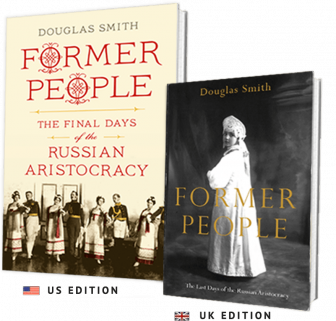Review—Former People: The Final Days of the Russian Aristocracy,
by Douglas Smith
Farrar, Straus and Giroux, 2012, 464 pp.
In 1946, George Kennan argued that the “ideology, and the circumstances of power” inherent in the Soviet regime required the Communist Party to have enemies to point to in order to legitimize its exercise of complete and exclusive control over the economic, political and social life of all citizens of the U.S.S.R. Kennan believed that by the end of World War II, it had become increasingly difficult to target internal “enemies of the revolution”—the purges of the 1930s could hardly have been more effective at eliminating them. But the war, and the subsequent competition among the victors for regional and global influence, allowed the Party to point to external enemies: the capitalist regimes of the West. Thus, with Kennan’s help, the Cold War was initiated.
But who were these “enemies” within the Soviet Union prior to the Second World War? Douglas Smith goes a long way to bring home the reality of one group of these “counter-revolutionaries”—the so-called “former people.” Continue reading “The Fate of the “Former People”: Social Modernization in Russia Compressed”

